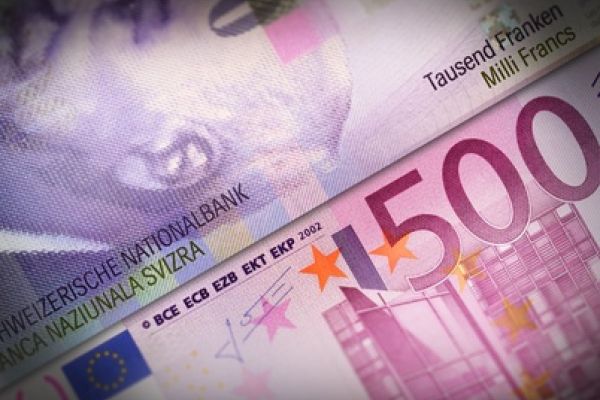
Strong Swiss Franc Exchange Rate Saves Switzerland from High Inflation
May 17, 2023Inflation in Switzerland
Inflation in Switzerland hit its peak this year in February with 3.4% year on year. For the whole last year it was at moderate level 1.9%, for this year Swiss central bank forecast it to at 2.6%. Since February inflation cooled down a bit mainly due to very good exchange rate of Swiss franc. In April prices hike was mainly driven by the rising cost of machinery, electrical equipment and watches, according to the Federal Statistical Office (FSO). “On the other hand, prices for petroleum products, metals, semi-finished metal products and gas fell,” the FSO stated. FSO also commented that last year pay hikes were damaged by inflation as a average Swiss employee, whether living in the country or cross-border worker, was 0.9% worse off than year before.
SNB to the Rescue
After inflation had peaked in February, the Swiss National Bank decided to act yet again in a bid to stop prices form getting higher. The bank has raised rates from the negative territory to 1.5% in few moves this year. Further hikes of rates is inevitable, as the SNB Chairman Thomas Jordan said recently that inflation is still not under control: “Monetary policy is still not restrictive enough to anchor inflation in the area of price stability”.
Strong CHF
Very strong Swiss franc has cemented recently its position as main safe haven currency, destroying Japanese yen reputation. As the yen has dropped to historic lows versus the CHF, experts claim both currencies are not at the same level anymore. Previously both were stated to be safe haven assets, but now investors are much more eager to buy Swiss francs in times of trouble rather than Japanese yens. Japan has constant problems with trade deficits and monetary easing which have taken its toll on yen’s exchange rate. The Japanese currency has hit 153.80 yen against the Swiss franc on May 2, the lowest rate since Refinitiv began tracking the exchange rate data in 1982. This is nearly a third of its strength in September 2000, when it hit a record high of about 58 yen. Meanwhile the Swiss franc is also very strong in comparison to the US dollar, as it hit an over-two-year high against it on May 4.

